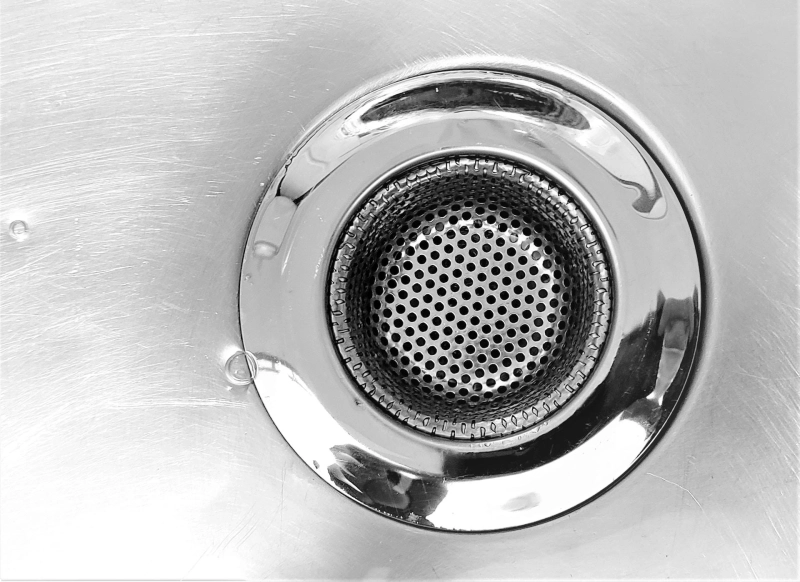Dealing with unpleasant odors emanating from your pipes can be a frustrating ordeal. It's not just a matter of discomfort – these smells can also signal potential plumbing issues that need addressing. Fortunately, there are several effective strategies you can adopt to eliminate these odors and prevent them from returning. In this post, we'll explore proven tips to help you say goodbye to pipe odors for good.
Understanding the Cause of Pipe Odors
Before implementing any solutions for pipe odors, it's essential to understand their underlying causes. Typically, these unpleasant smells can be attributed to a build-up of bacteria in your pipes, clogs formed by various substances, or issues related to the plumbing system's traps and vents.
This bacterial growth often thrives in the organic matter present in the pipes, such as food particles, grease, and hair. Identifying the root cause of these odors is crucial as it guides you in choosing the most effective solution to tackle the problem and prevent future occurrences.
Tip 1: Regular Cleaning and Maintenance
Regular cleaning is essential for preventing odor build-up in your pipes. Here's how you can do it:
#1 Weekly Flushes
A simple yet effective method to maintain clean and odor-free pipes is the practice of weekly flushes with hot water and/or disinfectants. This routine activity helps in dislodging potential build-ups of grease, soap, and other substances that can accumulate in your pipes over time. By doing this consistently, you can prevent these small accumulations from developing into major clogs or odor sources, ensuring that your plumbing system remains in good working condition.
#2 Natural Cleaners
Utilizing natural cleaners like a mixture of baking soda and vinegar is an excellent strategy for maintaining clean pipes without resorting to harsh chemicals. When you pour half a cup of baking soda followed by a cup of vinegar down the drain, the mixture creates a fizzing action that helps to break down organic matter and clear minor blockages. After letting it sit for about an hour, flushing the drain with hot water completes the cleaning process, effectively removing lingering odors and residue in an environmentally friendly manner.
#3 Enzyme Cleaners
For tackling more persistent or stubborn issues in your pipes, enzyme-based cleaners are a highly recommended option. These specialized cleaners contain natural enzymes and beneficial bacteria that work together to break down organic materials like food, grease, and hair that commonly cause blockages and odors. Unlike harsh chemical cleaners, enzyme cleaners are safe for your pipes and the environment, making them an ideal choice for regular maintenance and tough clogs alike.
Tip 2: Addressing Clogs and Blockages
Clogs are a common source of odors. To tackle this:
#1 Use a Plunger
A plunger can often be your first line of defense in clearing pipe blockages that lead to odors. This simple tool works by creating a pressure difference that helps dislodge whatever is causing the clog. It's especially effective for removing blockages that are not too far down the pipe, making it an essential item in every household for quick and easy odor resolution.
#2 Plumbing Snake
For clogs that are deeper and more stubborn, a plumbing snake, or a drain auger, is an extremely useful tool. It's a flexible, long device that can navigate through the twists and turns of your plumbing to reach and break up blockages that are beyond the reach of plungers. This method is more invasive than plunging but can be remarkably effective at clearing those difficult clogs that contribute to unpleasant odors.
#3 Professional Help
If you've tried plunging and snaking with no success, it might be time to call in professional plumbers. Persistent clogs could indicate deeper, more complex issues within your plumbing system that require professional expertise and equipment to resolve. A professional plumber can accurately diagnose and fix the problem, ensuring that the odors are eliminated and preventing potential future issues.
Tip 3: Inspect and Repair P-Traps
The P-trap is a U-shaped pipe under your sink that holds water, forming a seal that prevents sewer gases from entering your home. Here's how to maintain it:
#2 Check for Dryness
A dry P-trap can be a common cause of sewer odors in infrequently used sinks. The P-trap is designed to hold water that acts as a seal against sewer gases. If the sink is not used regularly, this water can evaporate, and simply running the water for a few minutes can refill the trap and restore the barrier.
#3 Clean the Trap
Cleaning the P-trap is a direct and effective way to eliminate odors. This U-shaped pipe under the sink can accumulate debris and cause odors. To clean it, place a bucket underneath to catch water, remove the P-trap, and clean it thoroughly before reattaching it.
Tip 4: Ensure Proper Ventilation
Proper ventilation in your plumbing system plays a vital role in preventing odors. Plumbing vents, designed to regulate air pressure and remove gases and odors from your pipes, need to be in good working order to function effectively.
It's important to check these vents regularly to ensure they are not blocked or damaged, as this can lead to a build-up of sewer gases and resultant odors. If you're unsure how to inspect and maintain these vents, it's advisable to seek the assistance of a plumber who can inspect, clean, and repair these vents, ensuring they are functioning correctly.
Tip 5: Combatting Bacteria Build-Up
Bacteria thrive in the sludge that can accumulate in your pipes. To combat this:
#1 Hot Water and Detergent
A combination of hot water and detergent can be effective in breaking down grease and other build-ups in your pipes. This mixture can help dissolve the fatty deposits and other substances that might be causing odors. Regularly flushing your drains with this solution can help maintain a clean and odor-free plumbing system.
#2 Professional Drain Cleaning
Sometimes, the severity of pipe build-up requires professional drain cleaning services. Professional plumbers have specialized tools and techniques to thoroughly clean your plumbing system and eliminate any persistent odors. This option is particularly advisable for recurring or very stubborn odor issues.
Tip 6: Seal Unused Drains
Unused drains in your home can unexpectedly become a source of odors, primarily due to the drying out of the P-traps. These traps, designed to hold water and prevent sewer gases from entering the home, can fail in their function if the water evaporates, which is a common issue in drains that are not regularly used.
To prevent this, consider sealing these drains or, more simply, regularly running water through them to maintain the necessary water barrier in the P-traps. This simple preventative measure can be key in avoiding the emergence of unpleasant odors from infrequently used drains.
Tip 7: Be Mindful of What Goes Down the Drain
Prevention is better than cure. Be mindful of what goes down your drains:
#1 Avoid FOG (Fats, Oils, Grease)
FOG (fats, oils, and grease) can be particularly problematic for your plumbing. When poured down the drain, these substances can solidify and create significant blockages, leading to odors and other plumbing issues. It's essential to dispose of these materials properly, rather than washing them down the drain.
#2 Food Scraps
Preventing food scraps from entering your plumbing system is key to maintaining odor-free pipes. Using drain strainers in your sink can effectively catch these particles, preventing them from contributing to clogs and unpleasant smells. This is a simple yet effective habit to adopt in your daily kitchen routine.
#3 No Harsh Chemicals
While it might be tempting to use harsh chemicals to clear blockages, these can actually cause more harm than good. Such chemicals can corrode your plumbing over time, leading to leaks and other issues. It's better to use gentler methods and products for maintaining your pipes to avoid exacerbating existing problems.
Tip 8: Regular Plumbing Inspections
Scheduling regular inspections by a professional plumber is an effective strategy for maintaining a healthy, odor-free plumbing system. These inspections are crucial in catching and addressing issues before they escalate into significant problems.
A professional plumber can thoroughly examine your system, identify potential or existing issues, and provide timely solutions or recommendations. Regular checks not only help in odor prevention but also contribute to the overall longevity and efficiency of your plumbing system, saving you from future costly repairs and inconveniences.
Conclusion
Dealing with pipe odors can be a nuisance, but with these tips, you can effectively address and prevent them. Regular maintenance, mindful usage, and professional assistance, when needed, can keep your home smelling fresh and your plumbing in top shape. Remember, the key to keeping pipe odors at bay is a combination of prevention, maintenance, and prompt action when issues arise.
By implementing these strategies, you'll not only eliminate unpleasant smells but also contribute to the longevity and efficiency of your plumbing system. So, roll up your sleeves, and let's sniff out those solutions together!
Author bio
Lucas Green is a young digital marketing enthusiast from Phoenix, Arizona, US. Passionate about graphic design, social networking, content writing, and business in general. In his spare time, he writes extensively about graphic design, traveling, and business for Blog Post Biz.



